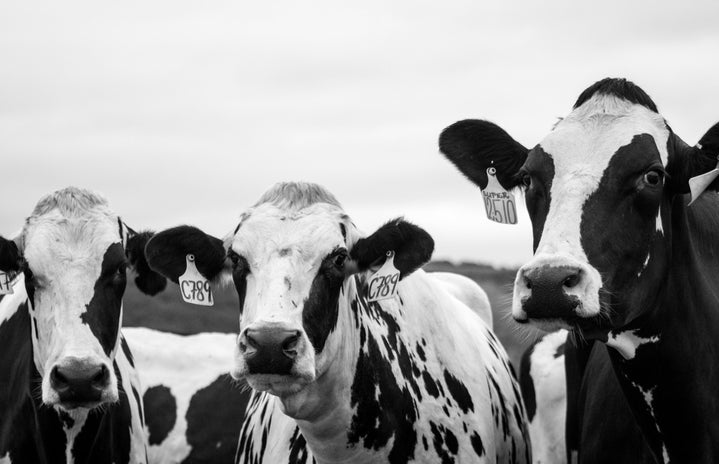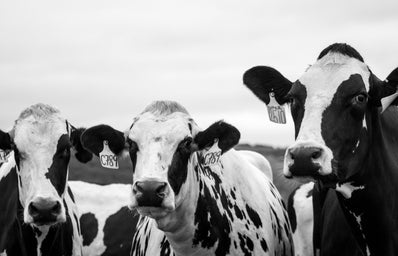The controversy of dairy farming and the impact that raising dairy cows has on the planet unfortunately has not shaken my love of cheese. A tremendous amount of land is needed to support the number of animals to fuel the meat industry, and dairy is just an additional factor that spawns from those animals. I am seeking to further explore the issues surrounding dairy farming in the United States and how it plays into the American agricultural system.
Judith Capper and Cady Roger explore relevant topics in their article “The effects of improved performance in the US dairy cattle industry on environmental impacts between 2007 and 2017,” in which they explore the issues of dairy farming and if it is something that is as bad as it seems. Right at the beginning, they state “In 2006, the U.S. dairy industry…was rocked by a Food and Agricultural Organization of the United States assertion that livestock contributed more global greenhouse gas emissions than transportation. The claim was withdrawn after critical review and has since been revised.” This statement threw my perspectives surrounding dairy farming out of the window because I was under the assumption that dairy farming was one of the worst polluters. Nevertheless, issues still exist in this industry.
First and foremost, many ingredients get fed to the livestock to produce the dairy. These ingredients include grass and alfalfa hay, wheat straw, corn grain, and soybean meal. Dairy cows, whether lactating or not, and whether or not the milk they produce is viable, consume these ingredients. Put simply, the farming of these ingredients takes in a significant amount of labor, land, fertilizers, and water.
Secondly, cows pollute. Elizabeth Grossman explores this in “As Dairy Farms Grow Bigger, New Concerns About Pollution,” pertaining to dairy farming in Wisconsin. She cites that a 2000-cow dairy farm generates nearly 90 million pounds of manure per year. The handling of the manure is also in need of reform since in Wisconsin alone in 2013, more than a million gallons worth of manure was spilled in the state from dairy farms alone. Intense nitrate pollutants that contaminate the groundwater arise from these spills.
Capper and Roger claim the handling of dairy farms have improved dramatically in the last few decades, and it is only projected to improve. It seems unclear as to whether or not the urgent issues pertaining to dairy farming are spawning from a narrative from the sustainability movement, or are they drastically improving on a day to day scale and are projected to only get better. While it is true is that dairy farming uses many resources and has the potential for disaster, it is unclear if it is enough to call for reform or an end to it.


